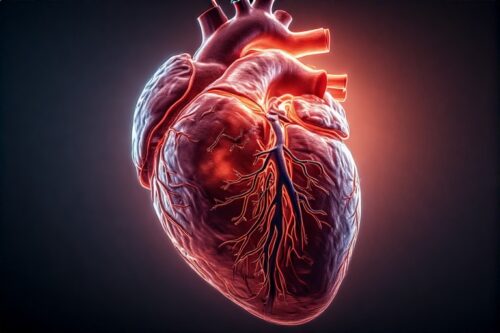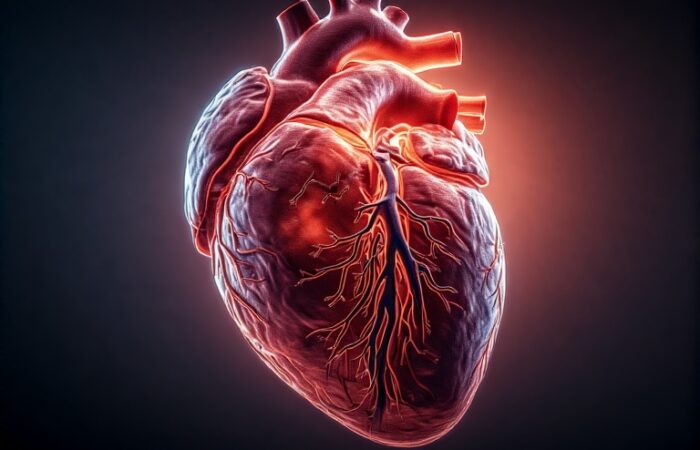
Congestive Heart Failure: 7 Brutally Honest Lessons That Changed My Life
“Your heart’s failing.”
That’s what the ER doctor said to me. Deadpan. Like he was telling me the weather report. I remember the weird beeping of the machines, the plastic taste of oxygen, and how my wife gripped my hand like it was keeping me on Earth.
I was 42. Relatively healthy — or so I thought. Sure, I was carrying some extra weight, I got winded on stairs, and I’d been ignoring my swollen ankles for weeks. But congestive heart failure? That sounded like something for 80-year-olds who smoke three packs a day. Not me. Not now.
Spoiler alert: it was me. And if you're reading this, it might be you too. Or someone you love. Either way, I’m not here to write a sugarcoated “health tips” blog.
I’m here to tell you exactly what it feels like to live with congestive heart failure — the fear, the frustration, the weird bloating, the meds, the mind games — and what I wish I knew when my heart started failing me.
Wait… What Is Congestive Heart Failure?
I used to think “heart failure” meant your heart just stopped. Like, boom — you're dead. Turns out, it's way sneakier.
Congestive heart failure (CHF) is when your heart can’t pump blood efficiently. Blood backs up. Fluid builds up. You swell like a balloon. Breathing gets harder. Your energy vanishes like it owes someone money.
In my case? It started with:
-
Swollen ankles (I blamed the heat — classic denial)
-
Getting winded tying my shoes (yes, tying my damn shoes)
-
Gaining weight out of nowhere (5 pounds in a week, but all water)
-
Waking up gasping for air like I’d been underwater
Still, I didn’t go to the doctor. I waited until I passed out in the kitchen and my daughter found me face-down by the fridge.
1. Denial Will Try to Kill You
I knew something was wrong. But I didn’t want it to be something serious. So I made up stories.
“Oh, maybe it’s just stress.”
“Must be the salt in last night’s pizza.”
“I’m just getting older. This is normal, right?”
No. It’s not. If you’re tired all the time, if your legs look like overstuffed sausages, if you’re gasping for breath lying down — your body is screaming at you. Don’t wait until it yells.
2. Your Ego Doesn’t Get a Say Anymore
Once I got diagnosed, the real war began — not with the heart failure, but with my own pride.
You want real vulnerability? Try asking your 13-year-old son to help you walk to the bathroom.
I hated needing help. I hated feeling weak. I hated that I couldn’t do a simple grocery run without collapsing in the frozen peas aisle.
But CHF doesn’t care about your ego. It will strip you down — emotionally, physically, even financially.
And you know what? That humility is weirdly freeing. Once I stopped pretending I was fine, I started getting better.
3. The Meds Are No Joke — But They’re Non-Negotiable
If I had a dollar for every pill I take daily, I could buy a decent used car.
Here’s my current pharmacy lineup:
-
Beta-blockers (slow the heart rate — and my energy)
-
ACE inhibitors (help with blood pressure — but give me a killer cough)
-
Diuretics (a.k.a. pee pills — don’t stray far from a toilet)
-
Potassium supplements (because the diuretics flush everything)
Taking them all is a pain in the butt. But skipping them? Yeah, I tried that. Once.
Within two days, my breathing got tight, my ankles ballooned, and I was back in the ER. Lesson learned.
4. Salt Is the Silent Killer in Disguise
I used to live for potato chips, pizza, bacon, all the good stuff. Turns out, they were slowly destroying my heart.
With CHF, salt is basically poison. It causes fluid retention — which your weak heart can’t handle.
Now I read labels like a detective. Anything over 140mg of sodium per serving? Hard pass.
Pro tip? Mrs. Dash seasoning. Tastes like flavor. Doesn’t kill me. Win-win.
5. Exercise Doesn’t Mean a Gym Membership
For a while, I thought exercise was off the table. Like, how can I move when I get winded walking 10 feet?
But then my cardiologist gave me the talk: “You don’t move — you die.”
So I started small:
-
3-minute walks to the mailbox
-
Then 10 minutes around the block
-
Eventually, 30 minutes a day with breaks
I still can’t run. Probably never will. But I can dance in the kitchen with my wife again. That’s enough.
6. Mental Health Is Just As Important (If Not More)
Nobody tells you how much CHF messes with your head.
There were days I thought I was dying for sure. I googled survival rates at 2 AM. I cried in the shower. I pushed everyone away — even the ones trying to help.
Therapy helped. Like, a lot.
And I started journaling. Not some woo-woo self-help thing. Just a way to dump the swirling fear out of my head and onto paper.
If you're reading this and you feel alone — trust me, you’re not. Find someone. Talk.
7. You Start Loving the Little Things Again
Here’s the weirdest part.
Getting diagnosed with congestive heart failure sucked harder than anything I’ve ever faced.
But it made me feel again.
I cry when I see my kids laugh. I savor food more. I stopped waiting to do the things I love.
I even started writing — this blog post is part of it.
Living with CHF means you can’t take life for granted. Because now, I don’t have the luxury of “someday.” I’ve got today. And honestly? That’s enough.
So What Helps (and What Doesn’t)?
Let me lay it out — no fluff:
What Actually Helps:
-
Low-sodium diet (Read every label)
-
Daily meds, even the annoying ones
-
Gentle movement (walking, stretching, not CrossFit)
-
Daily weight check (Sudden gain = fluid buildup)
-
Elevated feet (Goodbye swollen ankles)
-
Support groups (Online ones saved my sanity)
-
Therapy (Mental, emotional, the whole package)
What Made Things Worse:
-
Skipping meds “just for a day”
-
Salty snacks (Yes, even “healthy” frozen meals)
-
Lying flat (I sleep on a wedge pillow now)
-
Isolating myself
-
Thinking I had to be “tough” or “manly” about it
Things People Always Ask Me
“Can you be cured?”
Not really. CHF is chronic. But you can manage it and live a full-ish life.
“Can you still have sex?”
Yup. Might need adjustments. But totally possible. (Talk to your doc. Seriously.)
“Does it mean you’re dying?”
Not immediately. With treatment and lifestyle changes, people live years — even decades — post-diagnosis.
“Can you travel?”
Yes, with planning. I carry a pill organizer that could double as a tackle box.
My Takeaway?
Congestive heart failure stole a lot from me. But it gave me perspective.
It forced me to slow down, to ask for help, to value every damn breath.
If you’re in the middle of it right now — scared, confused, overwhelmed — I see you. You’re not weak. You’re not broken. You’re adapting. And that’s brave as hell.



